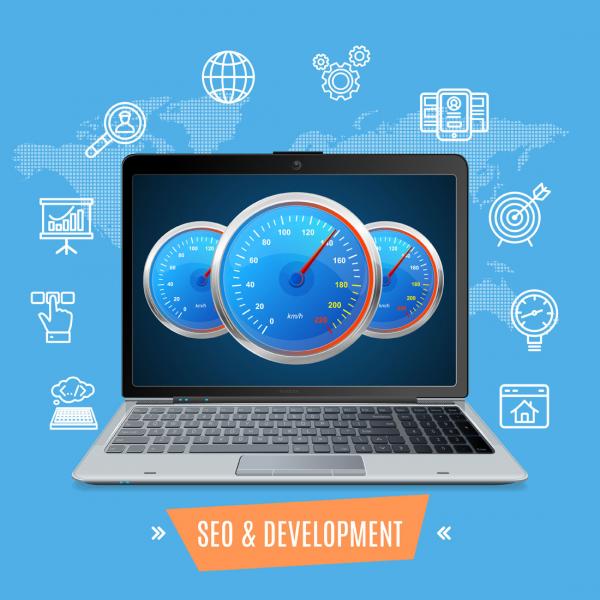Why should we care about how fast our site loads?

You may have heard about Google’s addition of website speed to its ranking algorithm -- or as they call it, ‘The Speed Update.’ You might also have seen Google’s PageSpeed website testing tool or the new Site Speed tab in Google Analytics.
Yet again, it all might have slipped under your radar. Afterall, you have a business to run.
So, why should businesses that want to maximize their online competitiveness and profitability care? Answering this question involves understanding something about Google’s prioritization and the direct impact speed has on visitor experience, engagement, and the bottom line.
Google Really, Really Cares About Speed
While it’s only more recently introduced speed as website quality standard, Google has been obsessed with loading performance for years. The reason for this is simple. For Google to succeed, the web itself must remain a viable source of business traffic and value. The advent of smartphones and mobile apps cast this viability into doubt. Within a short period of time, the realities of smartphone browsing grew to challenge website standards developed around the desktop computer, including how long it takes web pages to load. Simply put, a web comprised of bloated desktop-first content was prohibitively slow for the emergent mobile world of smartphone users and consumers. New standards were required.
Good for SEO
Mobile browsing has now overtaken desktop. Combined with the new speed algorithm and the introduction of Google’s PageSpeed analysis tools, website design and SEO companies can offer their clients a real competitive edge within this ever-growing browsing market. Responsive websites that eliminate speed bumps have a ticket to authority, improved ranking, and traffic.
Google PageSpeed results for Cityline Websites client Nick’s Cleaning

Good for Conversion & Sales
What’s more, websites that score well in Google’s PageSpeed tool convert more traffic into inquires and sales. According to Google’s own research, just a one second delay in load time can impact conversion by up to 20%, and 53% will leave a mobile landing page if it takes more than 3 seconds to load (Google refers to a site’s time to load as its Speed Index). Conversely, a fast experience can help attract and keep customers. It doesn’t matter if you’re Walmart, or a local business, study after study have proven better performance leads to increased traffic, longer website visits, page views, and ultimately more inquires and sales.
Whether the focus is improved ranking and exposure for your business in Google, or improving your website’s user experience, the bottom line is that speed matters. These are big wins. Don’t miss out.
